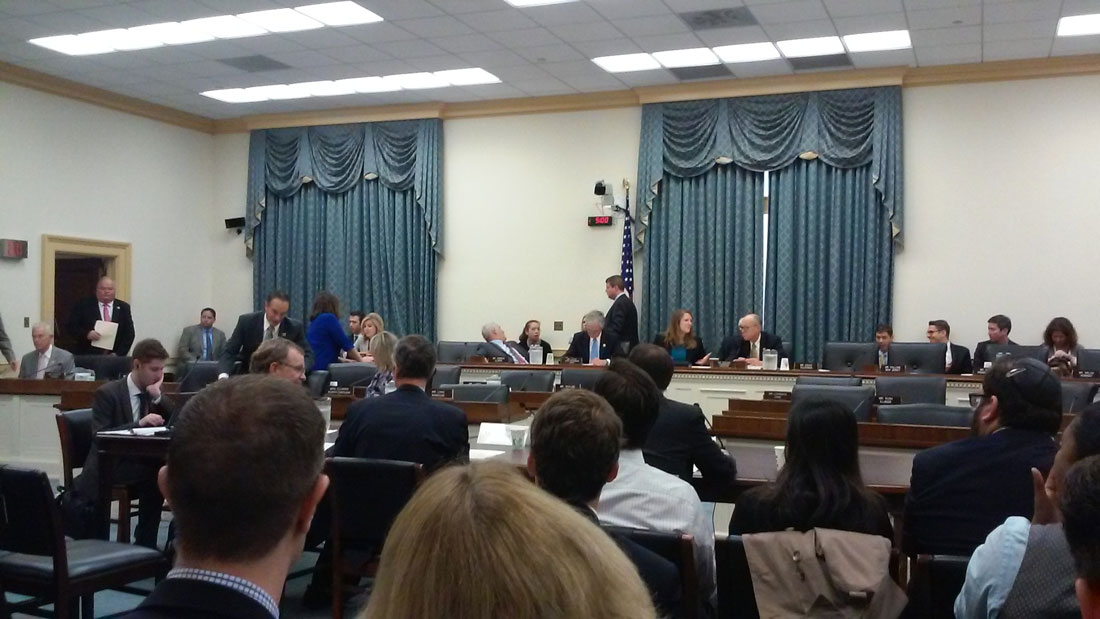WASHINGTON — A bidding war between major telecom companies to increase their coverage capabilities may be on the horizon after a bill incentivizing government agencies to sell their broadband spectrums received strong bipartisan support from the House communications subcommittee on Wednesday.
The bill has received support from both sides of the aisle and from experts. Dennis Roberson, a vice provost and research professor in computer science at the Illinois Institute of Technology, praised the proposal, calling the Federal Spectrum Incentive Act “the only way to expand” spectrum use.
“We cannot make more spectrum,” Roberson said at a subcommittee hearing. “But we can use it more effectively.”
A House official said the bill is expected to pass the House and Senate, but only if lawmakers can resolve a problem created under sequestration, which says lawmakers cannot approve new spending without a corresponding increase in revenue. A Congressional Budget Office analysis of the proposal set its cost at $30 million but didn’t account for the sales revenues. That’s because the CBO earlier projected all government spectrum sales for a decade at an amount much lower than already has been exceeded by a previous auction, which generated over $44 billion.
The bill, sponsored by Kentucky Republican Rep. Brett Guthrie and California Democratic Rep. Doris Matsui, would amend the Commercial Spectrum Enhancement Act of 2004 to allow government agencies to choose between receiving funds to cover the cost of spectrum relocation or receive a portion of the auction proceeds if they decide to sell part of the spectrum bandwidth they control.
In essence, the bill would give government agencies an incentive to put up for auction more valuable spectrum bands, particularly those used by major telecom companies. When these bands go for auction, telecom companies could be in a financial fight to acquire spectrum that would increase both the area and quality of their coverage, which benefits both the providers and the individual consumer.
“Given the high demand for spectrum that we’ve seen in the marketplace […] we would expect a strong response from the industry should the FCC move forward with a federal incentive auction,” Guthrie spokesperson Jennifer Sherman said.
According to Phillip Berenbroick, a spokesman for the government watchdog group Public Knowledge, as the industry moves from 4G networks to 5G networks, there will be an increase in consumer data usage and, as a result, “a much higher need for spectrum.”
Telecommunication giant Verizon said in a statement that it supports the Federal Spectrum Incentive Act. It “marks an important step to ensure wireless networks have the capacity to serve consumers, while also maintaining important safeguards to protect the Department of Defense and other federal agencies in the spectrum-reallocation efforts,” Verizon said.
While the subcommittee has yet to formally approve the measure, the full House Energy and Commerce Committee likely will not add its approval, which would sent the bill to the House floor for a vote, until the cost versus revenue issue can be resolved.

